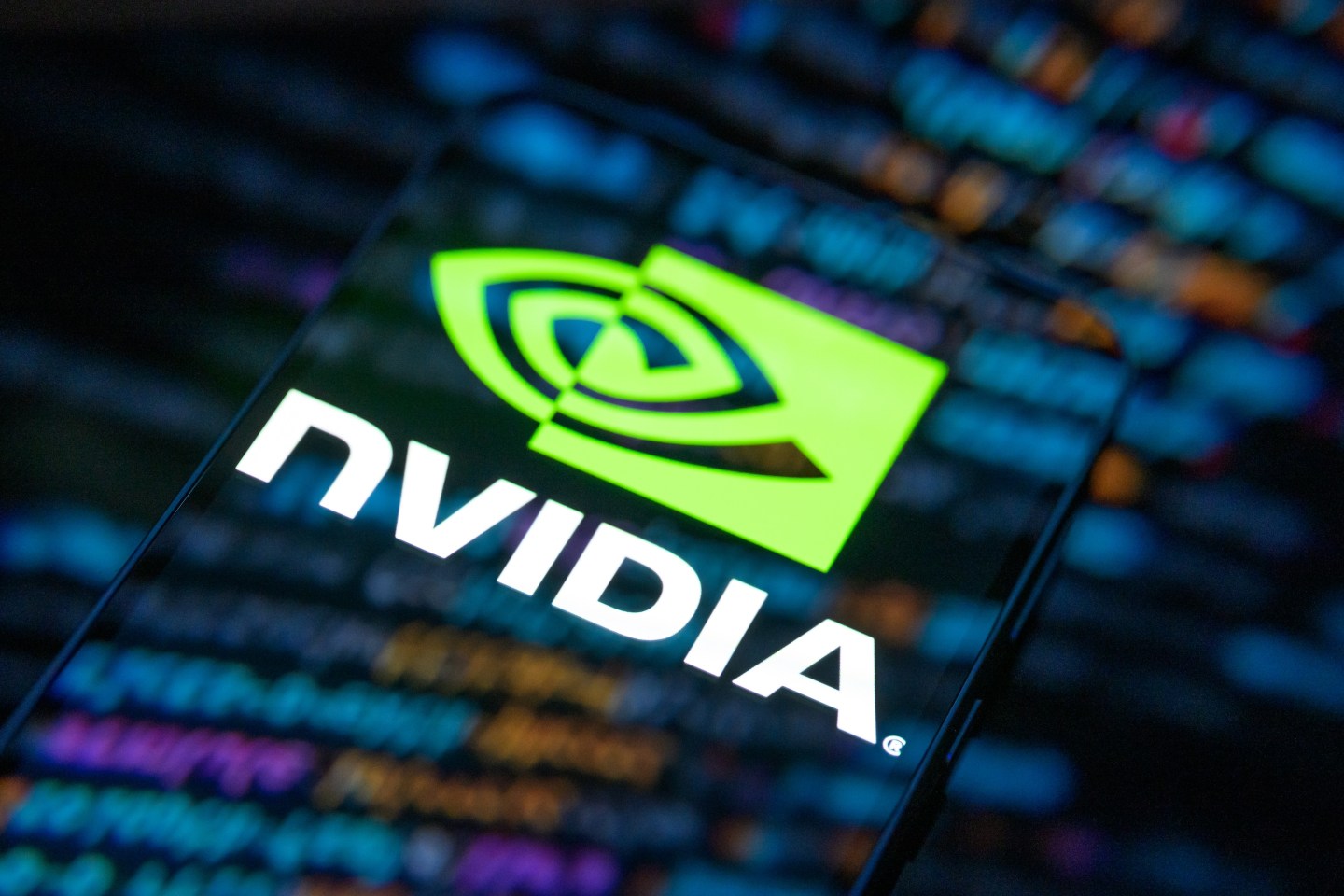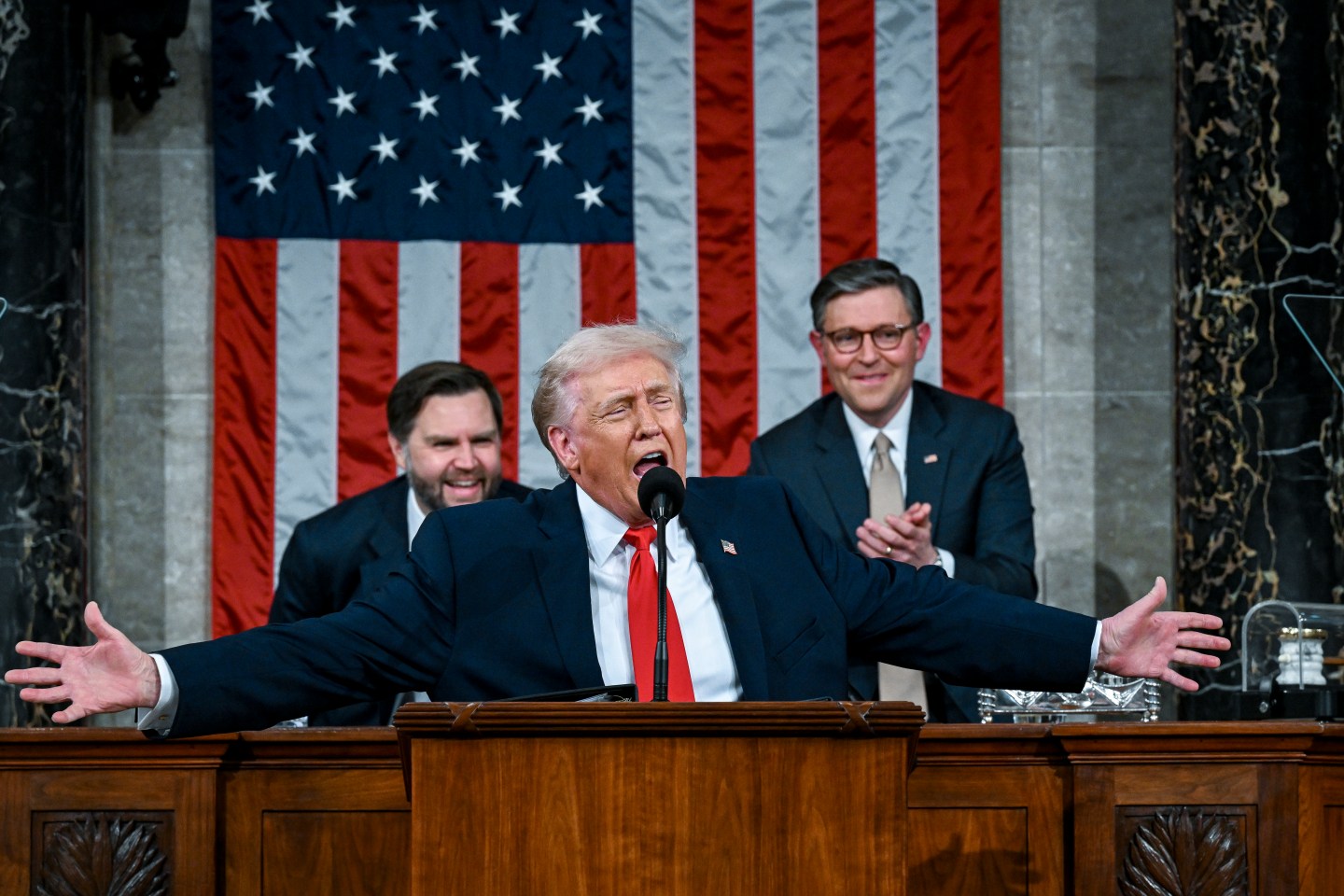Good morning. Lean and mean today, like a VC meeting with Erlich Bachman.
Today’s news below. —Andrew Nusca
Want to send thoughts or suggestions to Data Sheet? Drop a line here.
Broadcom weighs deal for some of Intel’s businesses

Broadcom is reportedly kicking the tires on the chip design and marketing divisions of Intel.
The Silicon Valley chipmaker—headquartered a mere 14-mile drive up the road from neighbor Intel—has “informally discussed” making a bid for the businesses, according to a new Wall Street Journal report.
One hitch? It would need to find a partner for Intel’s manufacturing business, known as its foundry.
That partner could very well be TSMC. The chip supplier—the world’s largest “pure play” chip manufacturer—has reportedly looked into taking over some or all of Intel’s chip-making facilities, though not in conjunction with Broadcom, the Journal notes.
For those keeping score at home, that would mean the end of Intel as we know it. Though the Silicon Valley icon has been working to spin off units like its venture arm Intel Capital and Altera, which makes programmable chips, its foundry—which spent much of the last two years bleeding billions of dollars—has been a far harder sell.
Intel has leveraged federal government help to get out of its predicament. It has benefited from billions of dollars in CHIPS Act funds from the Biden administration and has reportedly been working with the Trump administration, most notably Howard Lutnick, Trump’s nominee for commerce secretary, to do a deal with Taiwan’s TSMC—which would require the U.S. government’s signoff. —AN
China's DeepSeek disappears from South Korea’s app stores
DeepSeek will not be available from app stores in South Korea over concerns about the Chinese AI startup’s handling of user data.
On Monday, South Korean authorities said DeepSeek had been removed while authorities “thoroughly examine” its data handling practices to ensure compliance with local laws.
The app was removed on Saturday at 6 p.m. local time. Like TikTok after its U.S. ban, the app is still available to users who had previously downloaded the app.
DeepSeek has previously stated that it stores data in “secure servers located in the People’s Republic of China.” The company’s low-cost R1 chatbot stunned the tech industry last month by offering competitive performance with a pricey rival system from OpenAI.
South Korea’s Personal Information Protection Commission said DeepSeek “accepted” the agency’s proposal to suspend service in the country while it brought it into line with local privacy laws.
Earlier this month, several South Korean government agencies said they had blocked access to DeepSeek over privacy concerns, joining their counterparts in Italy, Australia, and—if a proposed bill were to pass—the United States. —AN
Europe slightly eases tech regulation stance
The EU is becoming a little less heavy-handed with its tech regulation, but that isn’t because of the Trump administration’s stance on the subject, the European Commission claims.
Digital policy commissioner Henna Virkkunen told the Financial Times that competitiveness was the reason the Commission was withdrawing a proposed directive on civil liability for AI and—she revealed—also easing the reporting requirements under an upcoming AI code of practice.
“We are very committed to cut bureaucracy and red tape,” Virkunnen said.
All this does come in the context of the Trump administration's deregulatory push at home and abroad—it has threatened the EU over enforcing its rules against U.S. Big Tech.
However, not everything is about the U.S. Last year’s European Parliament elections tilted the EU to the right and (along with a major report on EU competitiveness by former Italian premier Mario Draghi) set the stage for a regulatory overhaul that we are now seeing play out.
The U.K. on the other hand is quite clearly following the U.S.’s lead on AI regulation. It recast its less-than-two-year-old AI Safety Institute as the AI Security Institute, and abandoned the organization’s focus on issues like AI-fueled disinformation and AI bias.
“A more pared back approach from the government risks leaving a whole range of harms to people and society unaddressed,” said Michael Birtwistle, an associate director of the Ada Lovelace Institute, a London-based independent AI research institute. —David Meyer
More data
—AI for better dating behavior. Match Group is using AI to encourage some men to communicate appropriately on its apps.
—DOGE is firing federal IT workers. The U.S. Digital Service has been largely replaced by Elon Musk’s advisory organization.
—Tencent is testing DeepSeek within search in its WeChat (Weixin) messaging app, China’s largest.
—Apple preps AI for Vision Pro. Intelligence features to come to its pricey headset.
—A dubious record for tech unicorns. Some 1,200 venture-funded private companies have yet to IPO or be acquired.
—Border trouble for U.S. crypto miners. Customs scrutiny and delays in receiving new equipment from Chinese suppliers.
—“Algorithmic discrimination” is a target for lawmakers in more than a dozen U.S. states.
—Silicon Valley lost its verve to solve issues of national priority, Palantir executives say.














